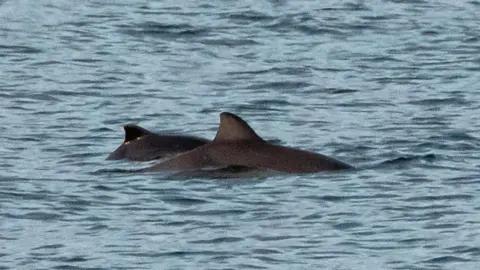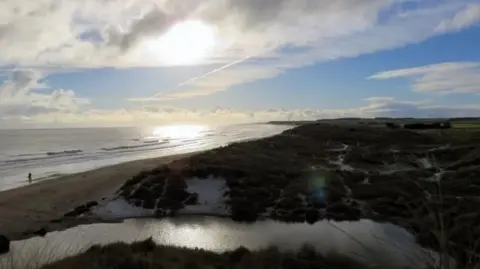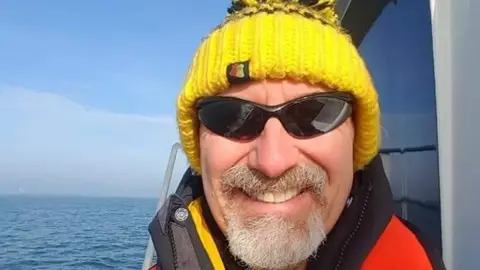Mystery over spate of dead porpoises along coast
 Martin Kitching/North East Cetacean Project
Martin Kitching/North East Cetacean Project Marine experts say it is not clear why a number of dead porpoises have washed up on a stretch of North East coastline.
At least five have been found on Druridge Bay and Cresswell, Northumberland, in the last week and a sixth was found further north in Craster on Monday.
"We usually get one or two a month at most, so to get a group like that in the same area is quite unusual," Ivor Clark of Newbiggin Dolphin Watch Association said.
There was evidence some may have been the victims of predator attacks with a killer whale also possibly sighted in the area, Mr Clark said.

He said: "We know that bottlenose dolphins will attack porpoises, but there was also a possible recent sighting of an orca by the coast at Cullercoats, North Tyneside, which made me think that could be linked to the porpoise deaths.
"The line of investigation at the moment is to take photographs, send them off to specialists and then try and find out what the predator has been."
Martin Kitching, the coordinator of the North East Cetacean Project which monitors sea mammals between Scotland and the Humber, said: "It is unusual to have so many strandings.
"Although some years ago we did have six dolphins wash up together, it's often down to the tidal flow which concentrates things in particular areas."
 Martin Kitching/North East Cetacean Project
Martin Kitching/North East Cetacean Project Mr Kitching thinks the deaths are most likely due to a combination of factors.
"Poor winter weather tends to cause quite high mortality, they just don't cope well with rough seas," he said, adding: "But on top of that we know bottlenose dolphins will attack and kill porpoises and also grey seals.
"We've seen a porpoise body recently with grey seal claw marks.
"Porpoises just have an incredibly tough life."
Anyone who comes across a dead porpoise should not move or touch the body.
Along with whales, dolphins and sturgeon, porpoises are designated as "Royal Fish" and have to be reported and recorded by HM Coastguard.
Follow BBC North East on X (formerly Twitter), Facebook and Instagram. Send your story ideas to [email protected].
